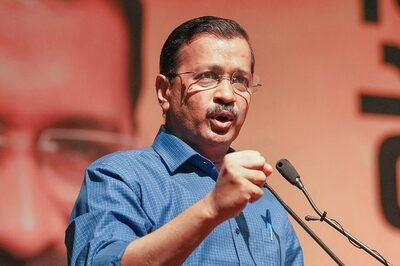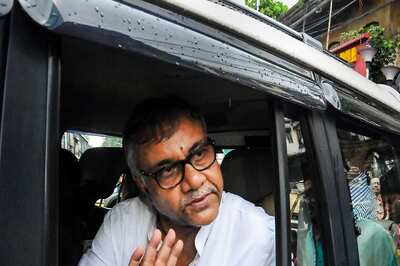
views
Barcelona: Spain's powerful northeastern region of Catalonia bids farewell on Sunday to the country's emblematic tradition of bullfighting with a final bash at the Barcelona bullring.
The sold-out evening event at the 20,000-seat Monumental ring is the last fight scheduled this season. A regional ban on the bloody pastime takes effect Jan. 1, 2012.
Bullfighting's popularity in Catalonia has plunged in recent decades and the Monumental is its last functioning ring.
The Catalan Parliament banned the spectacle in July 2010 following a signature-collection campaign by animal rights activists.
But critics say the ban is less about animal welfare and more a snub to Spain by independence-minded Catalans.
Hours before the fight, a small group of anti-bullfight activists gathered outside the arena, celebrating with sparkling wine.
"Obviously a lot of political parties have tried to politicize this, but we mustn't forget that this popular proposal sprouted from a pure pro-animal rights standpoint aimed at eradicating animal cruelty," campaigner Soraya Gaston said.
Nearby, people lined up to try buying last-minute tickets.
"It looks like this may be the last day (of bullfights in Catalonia). But the last word hasn't been said yet," said fan Eduardo Edurna. "I think we will have bullfighting back in Catalonia."
The prohibition caused a furor and triggered a nationwide debate over the centuries-old spectacle that inspired such artists and writers as Goya, Picasso and Hemingway.
"Banning bullfighting in Catalonia is nothing more than an attack on liberty," said Carlos Nunez, president of Spain's Mesa del Toro pro-bullfighting umbrella group. "It's the fruit of policies in Catalonia against bullfighting and all that is seen to represent Spain."
Although mostly symbolic - the Monumental staged only some 15 fights a year - the prohibition sent bullfighting supporters frantically looking for ways to overturn the decision or at least make sure it doesn't spread to other regions.
Spain's leading conservative opposition Popular Party - tipped to win general elections in November - has appealed the ban before the Constitutional Court, while its Catalan branch is battling for a delay in the implementation of the ban.
Meanwhile, the Mesa del Toro is seeking 500,000 signatures in the hope it can persuade the Madrid national parliament to grant bullfighting cultural heritage status.
Animal rights activists, meanwhile, are triumphant.
"It's like a crack has developed in the armor plating (of bullfighting). It's a small crack but the protective shield might crumble altogether," said Leonardo Anselmi, a key promoter of the Catalan prohibition.
Catalonia is the second of Spain's 17 regions to ban bullfighting. The Canary Islands outlawed the practice in 1991 although it had never been a popular tradition there.
For the moment, however, there are no signs any other Spanish region will follow suit.
The practice was once immensely popular in Barcelona and other Catalan towns but its decline began with the end of the dictatorship of Francisco Franco in 1978 and the subsequent rise in Catalan nationalism and a rejection of things deemed Spanish.
Sunday's fight stars Spain's No 1 matador Jose Tomas.
Following the second-to-last fight on Saturday, hundreds of bullfight supporters chanted "Catalonia is pro-bullfighting" as they accompanied the matadors to their hotel.




















Comments
0 comment